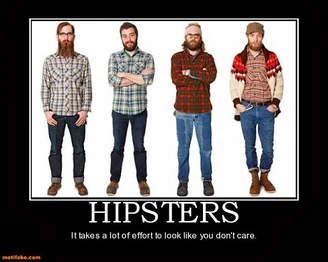
In the early 21st century college students will end up creating a whole new class. These young millennials (and post millennials) will vary in social status, ranging from Billionaires to poor idealists.
People in the college working class work mostly in technology fields and tend to be bloggers, web developers, actors, actresses, DJs, music producers, filmmakers, app makers, start-up CEOs, or interns on the side. They are idealistic in the hopes that their ideas become popular so that they can quit their day jobs or drop out of University. Which they may or may not want to do the rest of their lives. This class has a nickname called the "Yuccie", the Young Urban Creative, which is a variant of the "Yuppie".
History[]
2000s and 2010s[]
The College Worker can be traced back to as far back as when College was first created, but it wasn't until the early 21st century when it became an official working class to describe a group of people. Young millennials being savvy with social networking and website development soon learned that they can change the world without leaving their dorm rooms! One of the pioneers of this working class was the founder of Facebook, Mark Zuckerberg. Currently one of the richest people on Earth , with his net worth reaching $100 billion in 2020, he has started out simply starting a small network in his Harvard dorm room. Older generations did not completely understand what their children were doing and how they were making their money. That was partially true, as most College Workers could not even describe what they did on a daily basis around the family dinner table due to the constant fast pace of the tech world. The College Workers jobs were always changing. It hardly mattered if they stayed at one company for years, or moved around different types of jobs never staying in one place for more than a couple of months. Many conservative blue collar workers called this work, "Fake work" or lazy. Many more Billionaires came out of this group than regular industrial jobs.
2020s and Beyond[]
In the 2020s College Workers became normalized and standardized. It was no longer seen that you had to graduate High School, go to a good college, get your diploma, and finally land a good job! That was the myth of the late 20th century and early 21st century, and a philosophy of the Baby Boomers. As many millennial and beyond would later find out the hard way. These new college workers were taking completely different paths and actually succeeded in making pretty good livings.
By 2025 it was accepted that the traditional college to job route or job then college route was not working and so the route was officially accepted to include the following changes:
- High School
- College
- Graduate School
- Speciality School
- Internship
- Mentorship
- Career
This route is very similar to medical and law school students. Once they go through these steps, the students are mature enough and ready enough to pursue a career. This proves this pattern is successful since the higher paying jobs such as doctors go through this pattern. By educating and entering the workforce when ready, people will become more successful than going through multiple dead end jobs because of a lower amount of education. Traditionally, college students started to enter the "real world" around the age of 22. They are expected to get married around the age of 25 and start having children in the late twenties. This was the standard route in the 20th century. But with the new route and the concept of extended adolescence, young people are not ready to face the realities of adult life (such as career) until their late 20s or even early 30s.
Culture[]
The College Workers were highly idealistic individuals and created or set the corner stones for much of the technological advancements that came out of the 21st century. Despite creating new technologies and shaping the world in their image, many College Workers did not have a universal dress code, universal standards, or even universal philosophies. This was unique to this time period before the regulation of the internet. While it was easy to break apart groups of social classes in the 20th century, it was increasingly difficult to do this in the 21st century.
Many philosophers and historians conclude that this is because of the information age. For the first time in history the entire world had access to knowledge and fake knowledge. The seamless interactions between various groups of people thanks to the rise in social media and the internet made it possible for people not only in America but all around the world, to find like-minded individuals or even individuals that they wanted to be like!
Later this same idealistic group would rise up against various technological advancements that they believed "went too far."
